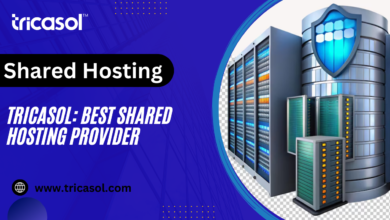9 Practical Event ROI Strategies Every Event Organizer Should Know
9 Practical Event ROI Strategies
Event organizers are continually challenged to not only create engaging and memorable events but also to ensure that these events provide tangible returns on investment (ROI). Whether it’s a corporate conference, a music festival, or a charity fundraiser, understanding and implementing effective ROI strategies can make the difference between a successful event and a costly endeavor. In this blog, we’ll delve into nine practical strategies that event organizers can use to maximize event ROI.
What Is Event ROI?
Event ROI, or Return on Investment, refers to the measurement and evaluation of the financial gains or benefits derived from hosting an event compared to the costs incurred in planning, organizing, and executing that event. Essentially, it’s about determining whether the event generated enough value, whether in monetary terms or other measurable outcomes, to justify the resources and efforts invested into it.
Calculating event ROI involves analyzing both the quantitative and qualitative aspects of the event’s performance. Quantitative metrics may include revenue generated from ticket sales, sponsorships, merchandise sales, or leads generated for future sales. On the other hand, qualitative metrics could include attendee satisfaction, brand perception, networking opportunities, and long-term relationships cultivated.
Understanding event ROI is crucial for event organizers as it helps them:
- Measure Success: ROI provides a clear metric to assess whether the event met its intended goals and objectives, such as boosting brand awareness, driving sales, or fostering community engagement.
- Optimize Resource Allocation: By analyzing ROI, organizers can identify which aspects of the event were most effective in delivering value and allocate resources more efficiently in future events.
- Demonstrate Value to Stakeholders: Whether it’s sponsors, investors, or organizational leadership, demonstrating a positive ROI helps justify the investment in hosting events and encourages continued support.
- Improve Future Events: Insights gained from ROI analysis can guide strategic decision-making for future events, helping organizers enhance attendee experiences, optimize marketing strategies, and increase overall ROI.
9 Practical Event ROI Strategies
- Define Clear Goals and Objectives Before diving into event planning, it’s crucial to define clear and specific goals and objectives. These should align with the overall purpose of the event and what you hope to achieve. For example, goals could include increasing brand awareness, generating leads, driving sales, or raising funds for a cause. By having well-defined goals, you can tailor your event strategies and measure success more accurately.
- Understand Your Audience A successful event hinges on understanding your target audience. Conduct thorough market research to identify your audience’s demographics, preferences, and pain points. Use this information to customize your event content, activities, and marketing strategies to resonate with attendees. The better you understand your audience, the more likely you are to create an event that delivers value and drives ROI.
- Leverage Technology Wisely In today’s digital age, technology plays a crucial role in event planning and execution. Utilize event management software to streamline processes such as registration, ticketing, and attendee tracking. Leverage mobile apps to enhance attendee engagement, facilitate networking, and gather valuable data insights. Embracing technology not only improves efficiency but also enhances the overall event experience, leading to higher ROI.
- Cultivate Strategic Partnerships Collaborating with strategic partners can significantly enhance the success and ROI of your event. Identify potential partners such as sponsors, vendors, or industry influencers who align with your event’s objectives and target audience. Develop mutually beneficial partnerships that can involve co-marketing efforts, shared resources, or exclusive offers for attendees. By leveraging each other’s strengths, you can extend reach, boost credibility, and create added value for participants.
- Implement Comprehensive Marketing Strategies Effective marketing is essential for driving attendance and maximizing ROI. Develop a multi-channel marketing plan that leverages digital platforms, social media, email marketing, and traditional channels such as print or radio, depending on your audience demographics. Use compelling content, visual elements, and targeted messaging to create excitement and encourage registrations. Monitor marketing performance metrics to optimize campaigns and maximize ROI.
- Focus on Attendee Engagement and Satisfaction Engaged and satisfied attendees are more likely to derive value from your event and contribute to ROI. Design interactive sessions, workshops, and networking opportunities that encourage participation and collaboration. Collect feedback before, during, and after the event to understand attendee expectations, gather insights, and identify areas for improvement. Implementing post-event surveys or interviews can provide valuable data for future event planning and ROI optimization.
- Measure Key Performance Indicators (KPIs) To assess the success of your event and ROI strategies, it’s essential to define and track relevant Key Performance Indicators (KPIs). These may include attendance numbers, ticket sales, revenue generated, leads generated, social media engagement, attendee satisfaction scores, and return on investment ratios. Use event analytics tools and surveys to gather data, analyze trends, and evaluate the impact of different strategies on ROI. Adjust tactics based on insights to improve future outcomes.
- Optimize Cost Management Effective cost management is critical for maximizing ROI and ensuring the financial sustainability of your event. Create a detailed budget that accounts for all expenses, including venue rental, marketing costs, staffing, catering, technology, and logistics. Seek cost-saving opportunities such as early booking discounts, negotiating vendor contracts, leveraging in-kind sponsorships, or exploring virtual event options. Continuously monitor expenses throughout the planning and execution phases to stay within budget and optimize ROI.
- Nurture Long-Term Relationships Building lasting relationships with attendees, sponsors, partners, and stakeholders is key to sustained event success and ROI. Follow up with attendees post-event through personalized emails, surveys, or exclusive offers to maintain engagement and gather feedback. Express gratitude to sponsors and partners through recognition, testimonials, or future collaboration opportunities. Cultivate a community around your event to foster loyalty, advocacy, and repeat participation, driving long-term ROI and success.
Conclusion
Effective ROI strategies are integral to the success of any event, regardless of size or industry. By defining clear goals, understanding your audience, leveraging technology and partnerships, implementing robust marketing tactics, focusing on attendee engagement, measuring KPIs, optimizing costs, and nurturing relationships, event organizers can maximize ROI and create meaningful experiences that resonate with participants and stakeholders alike. Continuous learning, adaptation, and innovation are key to staying ahead in the ever-evolving landscape of event planning and management.

